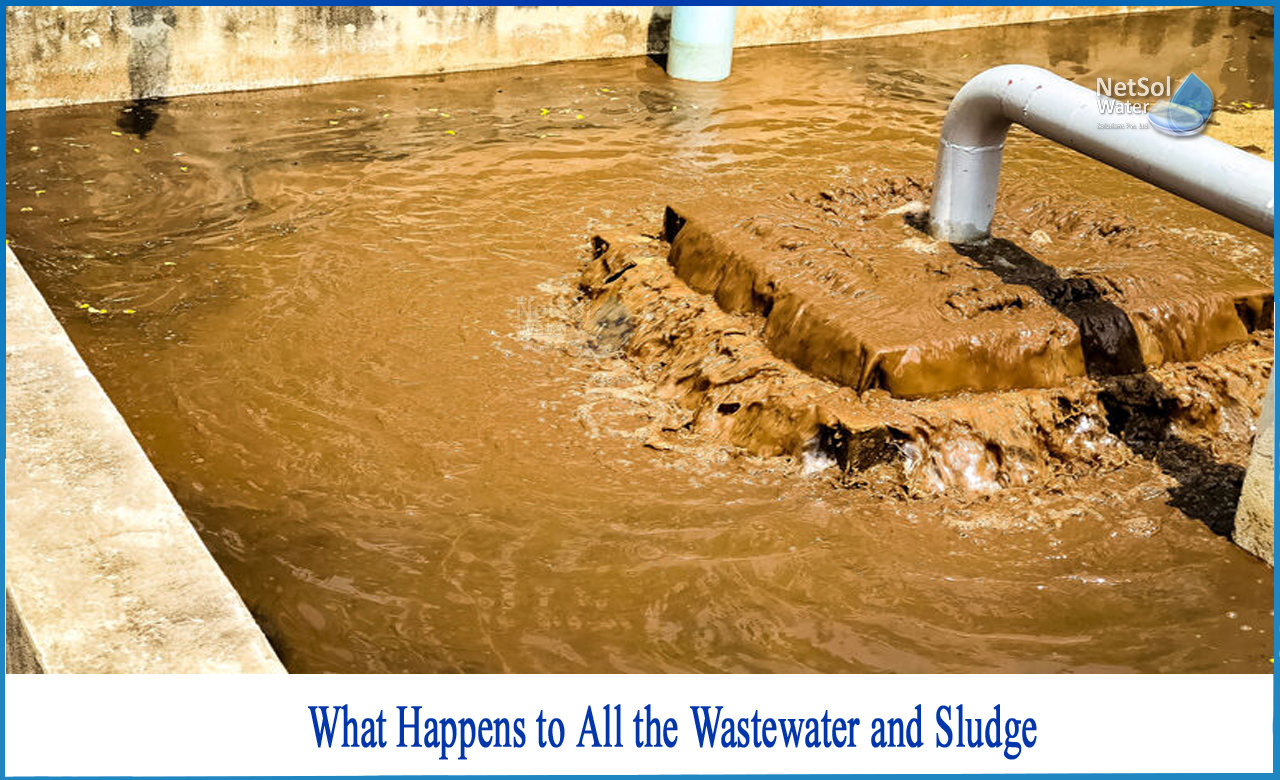What happens to all the Wastewater and Sludge?
Sewage is made up of urine, faeces, and flush water, all mixed together with water from our bathrooms and kitchens. It is channelled from toilets to Sewage Treatment Plants (STPs) or into the open, through underground piped systems (sewerage systems).
The vast majority of urban Indian toilets are linked to on-site containment systems. To be a viable alternative to sewerage systems, these systems must appropriately handle the faecal sludge and septage that accumulates.
Types of Wastewater produced by Human activities
1: Blackwater is a combination of urine, faeces, and flushwater, as well as toilet paper and anal cleaning water.
2: Greywater is water that has been used in the kitchen, laundry, or bathing (but not toilets).
3: Sewage: Waste that is conveyed through the sewage system. Usually, a mix of blackwater and greywater.
4: Faecal Sludge: A slurry or semi-solid mixture of excreta and blackwater, with or without greywater, that is raw or partially digested. It refers to the solidified or settled contents of pit latrines and septic tanks.
5: Septage: The liquid and solid stuff that has collected in a septic tank over time and is flushed out.
Untreated Human waste is hazardous to both public health and the environment, and as such, it requires quick management.
In general, the treatment procedure consists of the following steps:
1: Pumping and Collection
Sewage is pumped to various headworks, which screen out bricks, logs, and other big materials. Pumps transport sewage via deep tunnels.
2: Preliminary treatment
Mud and sand is collected in a tank known as a grit chamber. This debris, known as grit and screens, is then transported to a landfill for safe disposal.
3: Primary Treatment
The sewage is then routed to primary settling tanks, where up to 60% of the particles in the waste stream settle out as a sludge-water combination. This basic treatment eliminates just a little number of harmful substances.
4: Secondary Treatment
To accelerate the development of microorganisms, oxygen is given to the wastewater in the secondary treatment facility. The wastes are subsequently consumed by the microorganisms, which settle to the bottom of the secondary settling tanks. 80-90 percent of human faeces and other solids have been eliminated after additional treatment. This technique also removes a considerable number of hazardous substances.
Treated wastewater and sludge
Before being released into the receiving waterways, the leftover wastewater is treated.
Primary and secondary treatment sludge is further processed in sludge digesters, where it is combined and heated to reduce volume and kill disease-causing bacteria. It is then dewatered, heat-dried, and pelletized for use in agriculture, forestry, and land restoration.
Are toxic chemicals not a problem?
Yes! If harmful compounds are permitted to enter the system in excessive amounts, they may either prohibit the safe application of sludge as fertilizer or endanger the marine ecosystem if released into ocean waters. Government has created new restrictions to limit the quantity of dangerous chemicals that businesses may release into the wastewater system. The authorities are in charge of monitoring and implementing the restrictions, as well as imposing fines on industrial and commercial polluters.
Because of the reckless dumping of dangerous items down from residential drains, households are also a significant source of toxic substances. Motor oil, insecticides, paints, solvents, and even many home cleansers offer major environmental risks.
What do we offer?
If you want to know more about disposal of sewage and its treatment, then you can have an expert solution upon contacting Netsol Water, a leading manufacturer of Industrial and Commercial Water Treatment Plants and Wastewater Treatment Plants, among other services. Our treatment systems are very effective at removing all types of chemical, physical, and biological pollutants.
Netsol Water is Greater Noida-based leading water & wastewater treatment plant manufacturer. We are industry's most demanding company based on client review and work quality. We are known as best commercial RO plant manufacturers, industrial RO plant manufacturer, sewage treatment plant manufacturer, Water Softener Plant Manufacturers and effluent treatment plant manufacturers. Apart from this 24x7 customer support is our USP. Call on +91-9650608473, or write us at enquiry@netsolwater.com for any support, inquiry or product-purchase related query.



